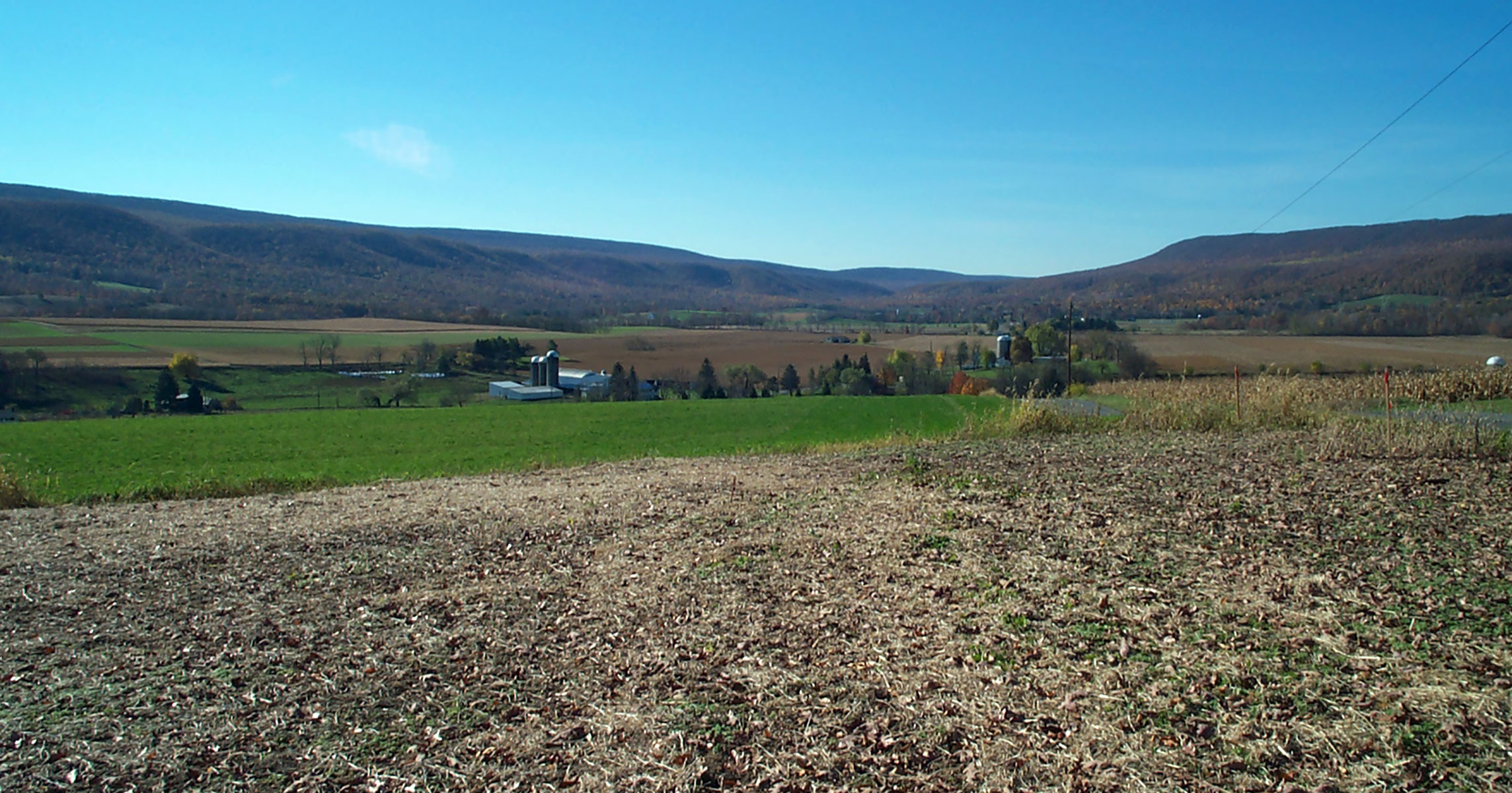Pennsylvania’s and Blair County’s number one industry is Agriculture. In order for us to be able to sustain ourselves with high-quality food we need to keep agriculture viable into the future. Blair County Commissioners authorized the formation of an Agricultural Land Preservation Board (County Board) and approved the first county program in 1991. The county program directs the Easement Purchase Program. Final approval for easement purchase is provided by the Pennsylvania Department of Agriculture – Bureau of Farmland Preservation (Bureau) and their Pennsylvania Agricultural Land Preservation Board (State Board). The State Board consists of 17 members: 8 ex officio members (or their designees), 5 members appointed by the Governor, and 4 members appointed by the party leaders of the State House of Representatives and State Senate.
The Blair County Commissioners appoint the five (5) members of the County Board to serve 3-year terms. The County Board is made up of 2 farmer/producers, 1 area contractor, 1 municipal official, and 1 member-at-large. The County Board sets local criteria and reviews all applications for easement consideration. As funding is available, the County Board will process farms for easement purchase consideration. Another function of the County Board is to disseminate information and assist landowners in their application to Agricultural Security Areas as administered by the Local Township Supervisors.
The Local Board meets the third Thursday of March, June and December and the fourth Thursday of September at 7:30 PM at the Conservation District Office.
Agricultural Security Areas
Agricultural Security Areas are a tool for protecting our farms and farmland from non-agricultural uses. To establish an ASA, a petition is submitted to the township supervisors by the farmers. These security areas are reevaluated every seven years; however, new parcels of farmland may be added to an established ASA at any time. A combined minimum of 250 acres is required for the establishment of an ASA.
An ASA may include non-adjacent farmland parcels of at least 10 acres or be able to produce $2,000 annually from the sale of agricultural products.

Participants receive special consideration regarding:
- Protection from local ordinances and nuisance lawsuits affecting normal farming activities.
- Review of farmland condemnation by state and local government agencies.
- Hazardous waste and low-level radioactive waste sites are not to be located on land in an ASA.
There are no restrictions on the land that is enrolled in the ASA and being in an ASA qualifies land for consideration under the farmland preservation program at the owner’s request, if the ASA has at least 500 acres enrolled.
Blair County currently has ASA’s established in 10 Townships. To create an ASA or to add acreage to an existing ASA, ALL landowners on the Deed must fill out and sign the PROPOSAL FOR THE CREATION OR MODIFICATION OF AN AGRICULTURAL SECURITY AREA form. The form should then be submitted to the Township via certified mail with return receipt. A copy of the form should also be sent to the Blair County Ag. Land Preservation Board via standard First Class mail.
Agricultural Conservation Easements
Blair County was approved to purchase Agricultural Conservation Easements in 1991, which provided an option to farmers who want to continue farming but are impacted by nearby nonagricultural development. By voluntarily selling their “development rights” to the Commonwealth and/or County, farmers are paid a portion of the nonagricultural development value of the property and may not have to sell the farm for conversion to non-farm uses. The land, with a conservation easement placed upon it to prevent development, can continue to be farmed. The Agricultural Conservation Easement Program is administered in Blair County by the Blair County Agricultural Land Preservation Board (County Board).
The purpose of the Program is the long-term preservation of productive farmland. Easements are always purchased in perpetuity.
To be eligible for the Easement Purchase Program, a farm must meet minimum criteria. Once a landowner determines that they are eligible for the Program, they can submit an Application to the County Board. Applications are due by October 15 each year to be considered for the following years funding. Interested Landowners need to re-apply each year. Landowners can also offer to Donate or do a $1 bargain sale for their Conservation Easement. Landowners who offer donations and bargain sales for Easements may move to the top of the Easement list at the discretion of the County Board.
To determine an Easement Value, an independent, licensed real estate appraiser is selected by the county board to determine the market value and agricultural value of the land. The difference between these two values is the maximum value of the conservation easement. Landowners may receive the appraised amount of the conservation easement for a perpetual easement.
For example:
- $10,000.00 Market Value/acre
- $8,600.00 Agricultural Value/acre
- $1,400.00 Conservation Easement Value/acre
The county board has the option to offer a purchase price less than the value of the easement. Landowners also have the right to hire their own appraiser should they disagree with the county board’s offer. Differences in the two valuations may be resolved by a formula outlined in the County Program.
Some “development” on a farm with an easement is permitted. Agricultural conservation easements do allow for the addition of buildings for agricultural production or a single housing structure for seasonal or part-time workers, granting easements for water, sewer, telephone or electric, leases for underground coal, oil and gas exploration, and customary off-season rural enterprises.
The Agricultural Conservation Easement Purchase Program is a vital element in the State and County’s farmland preservation effort. It supplements but does not replace, other techniques such as agricultural zoning or preferential tax assessment, which are utilized to protect Pennsylvania’s productive agricultural land resources.

